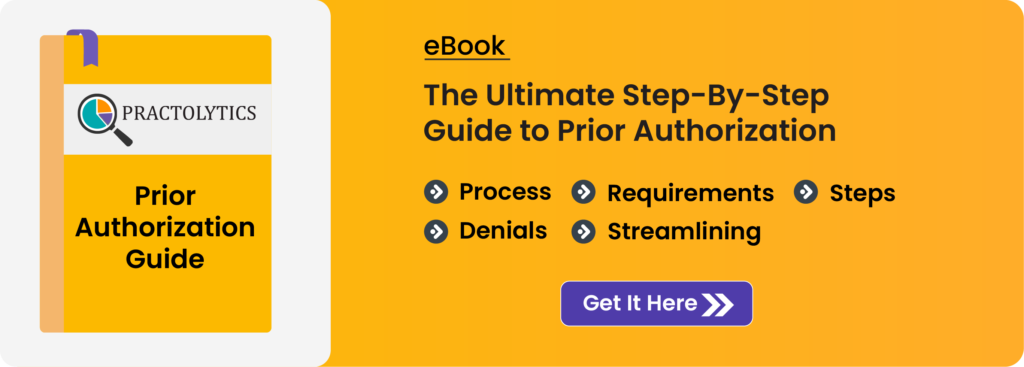How to Reduce Denials Through Pre-Authorization Management
Contemporary healthcare has made an important point in managing pre-authorization services as one of the key factors in the revenue cycle. A very daunting and intimidating task for a physician or any healthcare professional is the full comprehension of the labyrinth of insurance requirements. Failure to fulfill this task, however, would lead to the not-so-pleasing doors of denied claims that would affect cash flow and patient care.
Reduce denials by a very proactive and structured approach to pre-authorization management. This blog will highlight practical strategies about how to reduce denials through pre-authorization management and actionable insights meant to help healthcare providers minimize denials, while saving time and enhancing patient satisfaction.
Table of Contents
Understanding Denials
The issue before solutions is that one has to understand what denials are in the first place. According to industry reports, almost thirty percent of initial medical claims are denied. Of these, many fall afoul of pre-authorization. Some of the common causes are
- Lack of Pre-Authorization
Certain procedures and services require the insurance company’s approval beforehand. Lack of getting the pre-authorization may lead to an overall denial regardless of the legitimacy of the claim.
- Incomplete Documentation
Specific documents are required by insurers for the pre-authorization request to be approved. If there is absence or wrong information, it leads to processing delays or rejected requests.
- Non-Covered Services
Specific services may not fall under the patient’s insurance plan such that anyhow if he did not pre-authorize, the services would be automatically denied.
- Expired Authorizations
Most authorizations are time-bounded. If the procedure occurs not within the period of approval, the claim may be denied.
It is the first step of knowing the potholes to build a better pre-authorization management system.
Best Practices for Effective Pre-Authorization Management
Healthcare providers need a well-organized approach to tackle pre-authorization challenges. Here’s how you can build a system that works:
However, managed care organizations and comprehensive pre-authorization outsourcing don’t work well for many barriers faced by care providers. Here are some ways in which they can begin constructing a beneficial framework:
1.Centralize the Process: Disorganization approaches health insurance pre-authorization. This leads to inefficiency errors in centralizing a team or system that specializes in handling pre-authorizations, bringing along consistency, and accountability.
- Dedicated Personnel: Allocate supervised team members for prior-authorization for insurance.
- Technology Solutions: Take advantage of technology by integrating softwares with your EHR (Electronic Health Record) to track real-time authorisation request to make processing easier.
2.Know the Payer’s Updating Requirements: Insurance companies have constant updates, adding or subtracting prior-authorization solutions requirements she has to keep one step ahead and avoid surprises down the road.
- Subscribe to payer newsletters or portals to gain current updates.
- Regularly train your team to stay current with changes in payer guidelines.
3.Verify Benefits Early: One of the first things to even do while seeing a patient is checking the eligibility. This brings a clear picture of what to expect regarding coverage limitations and possible requirements for sometimes tardy pre-authorizations.
- Confirm coverage with real-time eligibility tools.
- The identification of services subject to prior approval should be as early as possible within the process.
4.Keep Proper Documentation: Accurate and complete documentation are synonymous for successful pre-authorizations. This includes all information so that no time is wasted.
- Clinical notes, test results, and procedure or service justification are included.
- Checklist to avoid anything being overlooked.
5.Track Expiration Dates: There are particular validity periods into which a pre-authorization falls; thus tracking them would help escape the denials as a result of the expiry.
- Set reminders for expiration dates using your EHR or practice management software.
- Re-initiate the authorization process promptly when renewals are needed.
6.Facilitate Cross-team Collaboration: Any disconnect between clinical and administrative teams creates chances for error with the pre-authorization process, which putting these teams together helps to remove. Open avenues for communication between physicians and billing teams: Occasionally organize meetings to solve pre-authorization issues with solutions.
Leveraging Technology for Streamlined Pre-Authorizations
Manual processes are prone to errors and inefficiencies. By leveraging technology, healthcare providers can automate and streamline pre-authorization management:
- Adopt Prior Authorization Software: Automated solutions can handle much of the heavy lifting, from checking payer requirements to submitting requests and tracking approvals. These tools reduce administrative burden and free up staff time for other critical tasks.
- Integration with EHR and Practice Management Systems: Integrating pre-authorization software with your existing systems ensures seamless data flow and minimizes redundancies. It also allows for real-time updates and better tracking of requests.
- Analytics for Continuous Improvement: Data analytics can provide valuable insights into denial patterns, helping you identify areas for improvement. Track metrics such as:Number of pre-authorizations submitted vs. approved. Average time taken for approvals. Common reasons for denials.
Role of Outsourcing Pre-Authorization Services
For healthcare providers struggling to manage pre-authorizations in-house, outsourcing can be a viable solution. Partnering with a trusted pre-authorization service provider like Practolytics brings several advantages:
- Expertise: Specialized teams handle complex payer requirements with precision.
- Scalability: Outsourcing allows practices to manage fluctuating volumes of requests effectively.
- Cost Savings: By reducing administrative overhead and denial rates, outsourcing can improve revenue cycles significantly.
Benefits of Effective Pre-Authorization Management
When done right, pre-authorization management offers tangible benefits that go beyond reducing denials:
- Enhanced Revenue Cycle Performance:
Less Denials Mean Faster Payments and Cash Flow Health, While an Effective Medical Prior-Authorization Process Guarantees a First-Time Approval for Claims Submission.
- Better Patient Experience:
No patient likes to face any unforeseen expenses or treatments that are delayed by their insurance problems. An effective line of handling pre-authorizations gives a smoother ride to the patients.
- Reduced Administrative Burden
Frees staff to spend time with patients instead of in a never-ending chase to seek approval for pre-auths.
- Meet Payer Requirements
A high-powered system brings you conformity into payer guidelines and reduces risk from audits or fines.
This is not new but it is no longer considered by most providers to be just an administrative function: Medical Prior-authorization services management has transformed into a strategy for survival. You can legitimately and substantially reduce the levels of denials and improve the efficacy of the revenue cycle by implementing these best practices and some of the technology-enabled or even outsourced processes.
At Practolytics, we comprehend the intricacies of pre-authorizations and thereby offer customized solutions working in line with the specific requirements of healthcare providers, enabling you to streamline workflows and concentrate on delivering quality patient care.
Ready to optimize your pre-authorizations process? Contact Practolytics today to understand how we can help you achieve your goals.
In short, Deleting Denials Improvement and Overall Operational Efficiency will hinge greatly on effective pre-authorization management. Prioritizing this aspect of the revenue cycle management services in your practice ensures that healthcare professionals and doctors provide both financial health for the practice and experience to their patients.
ALSO READ – Prior Authorization Power: Fueling Radiology Practice Revenue
Talk to Medical Billing Expert Today — Get a Free Demo Now!






